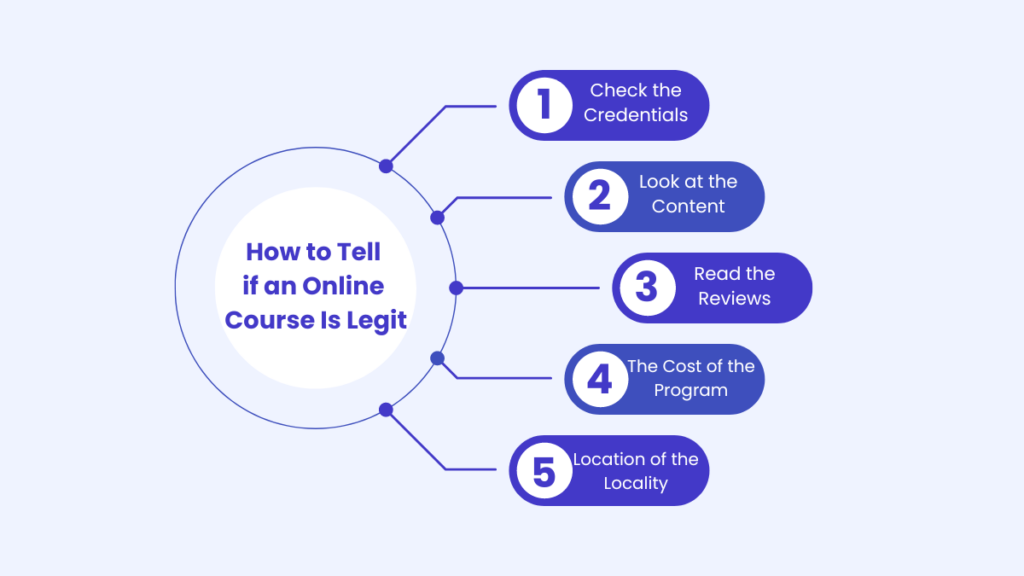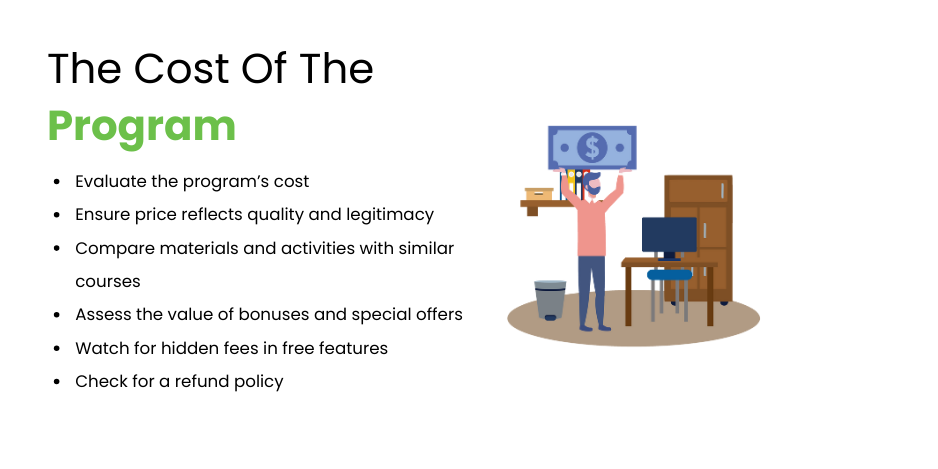It can be challenging to keep up with the latest trends and developments in an ever-changing world. One of these is the emergence of online courses as a popular way to gain knowledge and skills or even earn college degrees. With so many options available, knowing which courses are legitimate and worth your time and money can take a lot of work. To ensure you’re getting quality education from a reliable source, here are some tips on telling if an online course is legit.

Check the Credentials
One of the best ways to tell if an online course is legitimate is to check the credentials of those who created it. You should look for courses that qualified professionals teach with experience in their field, such as teachers or professors from accredited institutions.
For example, if you’re interested in courses related to data privacy or GDPR compliance, Seers offers accredited training led by industry experts. It’s also essential to ensure that any certifications associated with the course, like Seers’ GDPR or CCPA certification programs, are recognised by regulatory bodies.
Seers: Your Partner in Online Learning
When you choose Seers for your GDPR or CCPA certification, you’ll benefit from:

- Expert-led courses
- Up-to-date content
- Recognised certifications
- Flexible learning options
- 24/7 support
Start Your Certification Journey with Seers
Join Seers Now
Accreditation bodies, such as the American Council on Education (ACE) or Quality Matters, are necessary for validating course content and ensuring that the material is up to date. The provider of (ACLS) certification should be accredited by the American Heart Association. Make sure that any accreditation bodies listed are real organizations, not just made-up names meant to give credit where there aren’t any.
Look at the Content
Another way to tell if an online course is legit is to look at its content. You should know what topics will be covered, how long the lessons are, and what materials you’ll need to complete them. The more detailed a course description is, the better; it shows a clear plan for what you’ll be learning.
The quality of the materials used to teach should also be considered. Professional-looking videos, lectures, and interactive activities are all signs that the course is serious about helping students learn. Additionally, ensure there will be opportunities to ask questions and get feedback from the instructor, as this can help you understand the material and make good progress.
Read the Reviews
Remember to read reviews of an online course before signing up. See what other students have to say about their experience; if you only find positive reviews, that could be a sign that the course is legit. On the other hand, if there are a lot of complaints or negative feedback from past students, you should look for another option.
You should also check what type of customer service and support the course provider offers. Make sure that questions and concerns can be addressed in a timely manner and that resources are available to help struggling students.
Check How Long the Course Has Been Around
If a course has been running for several years, it can be a good sign that it’s reliable and well-established. On the other hand, courses that have only recently popped up may have needed more time to prove themselves, so you should approach these with caution.
When assessing how long an online course has been available, look at its website and promotional materials for clues about its history. The website should indicate when it was created, and the course materials should include information about its instructor’s qualifications.
The Cost of the Program
When considering an online course, it’s important to look at the program’s cost. The price tag can tell you a lot about the quality and legitimacy of the course. After all, if something seems too good to be true, it probably is.
If you’re looking for an in-depth, industry-recognised certification, platforms like Seers offer affordable training solutions that provide tangible benefits to your business—helping you stay compliant while protecting sensitive data.
In addition, Seers offers flexible payment plans and discount packages, making it accessible to businesses of all sizes. Always check whether the course provider has a refund policy in case the program isn’t right for you.
The cost should be proportional to what you get out of the course. If more materials or activities are included in the program than similar courses, its price may be slightly higher. Additionally, ensure that any bonuses or special offers associated with a course are worth your time and money.

Be wary of programs that offer extra features for free but require additional fees down the line – these could cost you more in the long run. Finally, consider whether there is a refund policy in case you decide not to continue with a course after signing up for it.
Location of the Locality
Online certified training courses can be taken from anywhere worldwide, but ensuring that the institution or instructor offering the course is based in a reliable location is vital. Look up information on where and how the training will be conducted – if you can’t find any details, then it might be best to steer clear.
It’s also worth taking the time to research the instructor’s qualifications and any other staff involved in running the course. Make sure they have relevant experience in their field and are certified or qualified as appropriate for the type of training they will receive.
By following these steps, you can ensure that the online course you’re considering, including certified training courses, is legitimate. Knowing that the course is reliable and trustworthy will give you peace of mind and help ensure your successful learning experience. So take your time, research, and then enjoy reaping the rewards of taking an online course.
By following these tips and choosing a reputable course provider like Seers, you can confidently invest in your education and achieve your goals.
